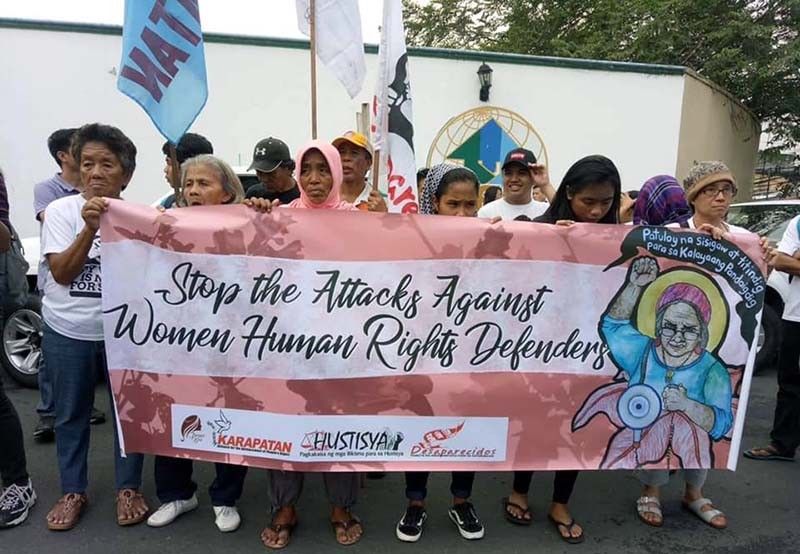Tagging rights defenders as 'enemies' puts them at greater risk — De Lima

MANILA, Philippines — Sen. Leila de Lima, detained since February 2017 in relation to drug cases that she says are politically motivated, said President Rodrigo Duterte's claim that human rights defenders are working against the government put them at risk.
De Lima, a former chair of the Commission on Human Rights, was reacting to a claim that Duterte made last week that human rights workers see the government as the enemy and want to destroy it.
Duterte said that rights defenders are silent about the lives that drugs and the drug trade have destroyed, a common argument used against those voicing concerns over the government's bloody campaign against illegal drugs.
But De Lima said that rights defenders "arduously and persistently check and speak out against abuses of power of those in government, safeguarding people’s rights to live in dignity" and not "enemies of the state" as Duterte implied in a speech last week.
RELATED: 'Rights defenders not out to 'destroy government,' Karapatan says
"Combine this label with his previous threats and this will most likely make human rights advocates targets for harm, harassment or even liquidation," De Lima said.
According to Dublin-based Front Line Defenders, which focuses on human rights defenders at risk, there were 39 HRDs killed in the Philippines last year.
"Judicial harassment and arbitrary arrests of HRDs continued to be the most frequently used tactics to silence HRDs in the region. In the Philippines, between October and November, scores of HRDs were arrested after the military released a list of institutions supposedly linked to a plot to oust President Duterte in early October, in what were clearly trumped-up charges," it also says in its Global Analysis 2018 released this month.
RELATED: 'Without rights, a return to rule by tyrants'
"No amount of rationalization would undo this conditioning of the president and his lackeys that could endanger the lives of HRDs once his fanatical followers, misguided security forces and death squads take Duterte's cue seriously," De Lima said.
The government has rejected accusations of abuse and has said that killing is not state policy. More than 4,900 "drug personalities" have been killed in anti-drug operations, accoording to Philippine Drug Enforcement Agency data in late 2018. All of those killed are said to have forced law enforcement into shootouts by violently resisting arrest.
Last week, Butch Olano, AI Philippines section director, said that human rights groups here and abroad “have not stopped working even as leaders such as Duterte continue to spew hate rhetoric against various sectors—women, the poor, indigenous peoples, the international community and again recently to human rights groups.”
“We stay focused with our work, despite threats, in order to make sure that hate speeches do not get translated into oppressive policies and unfair treatment. The president should also just stick to what the people have mandated him to do,” Olano said.
In late December, the Palace claimed without proof that the UN has been used by groups critical of President Rodrigo Duterte as a "tool for vilification" after Michel Forst, special rapporteur on the situation of human rights defenders, called on the government to end all forms of violations against human rights defenders.
RELATED: Philippines seeking clarification on UN rapporteur's report
- Latest
- Trending





























